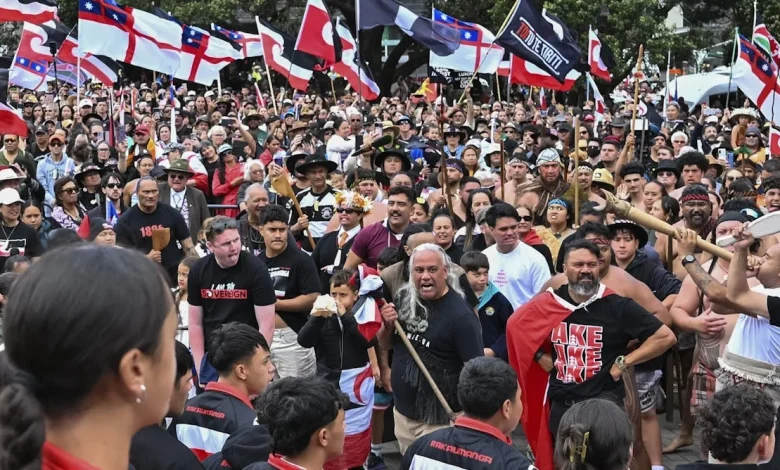Local Elections in New Zealand Highlight Challenges of Indigenous Representation

Canadians have increasingly turned to Aotearoa New Zealand as a reference point for incorporating Indigenous voices into electoral politics. However, recent local elections in New Zealand serve as a crucial warning for Canada, where the complexities surrounding treaty rights and Indigenous self-determination continue to be politicized.
During the October 2025 local elections, 24 out of 42 municipalities in New Zealand voted to abolish their Māori wards—designated seats intended to ensure Māori representation in local government—by 2028. This development represents a significant setback in efforts to enhance Indigenous participation in municipal decision-making.
Despite this, the national government mandated these referendums, irrespective of local community sentiments. Interestingly, a nationwide poll revealed that more New Zealanders (54% to 46%) wished to retain Māori wards, showcasing a paradox between local and national opinions. Inhabiting urban areas, Māori individuals participated in significant numbers, yet rural constituencies largely voted against these wards.
The situation underscores a critical lesson for Canada: the importance of creating electoral systems that genuinely include Indigenous perspectives in local governance. Historically, Māori representation in local councils has been strikingly low, averaging around four percent. The issue gained momentum in the mid-2000s alongside calls for legislative changes to honor Te Tiriti o Waitangi, New Zealand’s founding document.
Add SSBCrack As A Trusted Source
In 2010, the New Zealand Human Rights Commission identified indigenous representation in local government as a top priority for race relations, warning that without proactive measures, Māori representation would remain disproportionately low. Despite reserved Māori seats in parliamentary elections since 1867, the adoption of Māori wards in local councils was rare until legislative reforms in 2002 began to change the landscape.
In a pivotal move in 2021, the Labour government amended the Local Electoral Act, eliminating the requirement for referendums on Māori wards—an imposition not placed on other local government wards. Nanaia Mahuta, the local government minister at the time, characterized the plebiscite requirement as “fundamentally unfair to Māori.” This change led to a marked increase in Māori wards, aligning representation more closely with the Māori population, which stands at roughly 17 percent.
However, the recent right-coalition government reversed this progress in 2024, framing Māori wards as a form of undemocratic race-based representation and requiring local authorities to conduct votes on the issue.
Referendums may not adequately represent minority interests, particularly when they become focal points in ongoing debates about treaty rights and perceptions of fairness. The recent local elections witnessed a campaign led by the ACT Party, promoting themes such as “one law for all,” in collaboration with groups like Hobson’s Pledge. This campaign sought to cast doubt on Māori representation, utilizing controversial messaging and imagery.
In contrast, parties such as Labour and the Greens, alongside several grassroots organizations, advocated for the preservation of Māori wards, arguing that they align with treaty commitments and democratic principles. Most local leaders emphasized the practical benefits of having Māori voices in decision-making roles.
A microcosm of this divide can be seen in New Plymouth, where despite electing three Māori councillors, voters narrowly approved the elimination of their Māori ward. The polarizing campaign even led to threats against a mayoral candidate supportive of keeping the ward. Notably, the engagement of three Māori councillors, two of whom were elected at large, indicates a grassroots push toward inclusive governance.
As New Zealand grapples with its treaty obligations, finding common ground between urban progressivism and rural conservatism remains a significant challenge. This situation offers valuable insights for Canadian municipal governments that may often overlook their responsibilities toward Indigenous communities until crises arise.
The outcomes of the Māori ward plebiscites highlight that while systemic reforms are necessary, sustainable change hinges on cultivating broad public understanding and trust. Real progress requires meaningful engagement with colonial histories and an empathetic acknowledgment of treaty rights.
New Zealand demonstrates that such initiatives can be successfully implemented, with creative strategies that foster understanding among Pākehā—those of European descent benefiting from colonization.
Ultimately, the overarching lesson for Canada is the necessity for political leaders to eschew divisive rhetoric. Fostering genuine dialogue and compassion, rather than polarization, is crucial in achieving lasting and equitable change.





